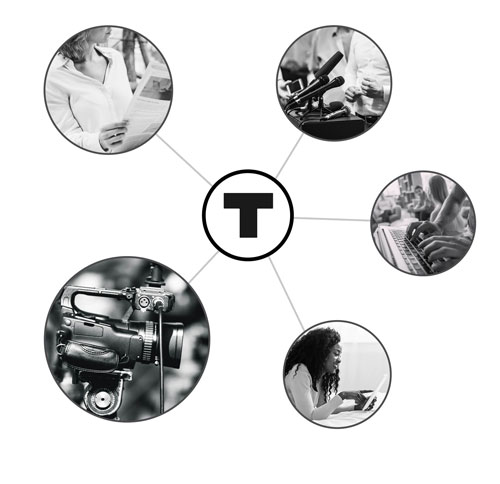What does the public value in the news?
What helps people trust it?
What has broken their trust?
How do these experiences and feelings intersect with the mission and values of journalism?
These questions fuel the Trust Project.
We created our 8 Trust Indicators by first consulting the public. People across race, ethnicity, gender, generation and U.S. geography shared their news habits, what they valued in news, when and why they trusted it, and when and why they didn’t. We asked what might help renew their trust in news.
Trust Project Interviews
Ten U.S. news readers: Avid to Annoyed
European Interviews and Responses to Digital Prototypes
(interviews by Christine Kurjan, Quiver Consulting)
Readers across race, ethnicity, gender, generation and U.S. geography shared their news habits, what they valued in news, when and why they trust it, and when their trust is broken. We asked what might help renew their trust in news.
From Kurjan’s U.S. interviews and those in Europe, we identified four user types: Avid, Engaged, Opportunistic and Angry. All four types, we learned, value news as an important sources of information. They varied in their confidence levels and in the time they are willing to spend finding and assessing news they find useful and trustworthy.
Three British news readers: Reactions to Trust Indicators and Prototypes
(interviews by Graham Bond, Jaron Murphy, Martin Buckley, Patricia Arlott, Chris Richards, Kevin O’Donovan, all faculty within the School of Business, Law and Communications, Southampton Solent University)
Faculty members at Southampton Solent University’s School of Communications and Marketing interviewed ten people from a diversity of backgrounds in the London area. After in-depth conversations with each, some themes emerged:
“¢ People tended to be loyal to one or two news sites that had won their trust. They checked these every day.
“¢ Even so, as in our other interviews, people accessed news in many forms
throughout the day: on a branded site, in social media, through search. They cross-checked one news source against another to build a
clearer picture of the news.
“¢ Many viewed non-branded online sites with skepticism, wary of poorly produced “churnalism.”
“¢ Most considered news consumption a civic duty. Some suggested news literacy be taught in schools.
“¢ Many felt the notion of ‘trust verification’ online was extremely valuable.
The Trust Issue in Italy
La Stampa Editor Mario Calabresi reviews the research on audience views of the media in Italy.
Trust Project Articles and Reports
What People Really Want from News Organizations
Sally Lehrman writes about Trust Project research and its implications in The Atlantic.com.
Advertisers: It’s Time to be Transparent about Labeling Content
Sally Lehrman urges advertisers to abandon practices that undermine trust and loyalty.
Trust Project Summit Report
Trust Project collaborations winnow the list of 37 Trust Indicator candidates to eight core ones now being displayed by news sites around the world.
Discoveries
In our original interviews starting in 2016, we identified four user types: Avid, Engaged, Opportunistic and Angry. All four types, we learned, value news as an important source of information. They varied, though, in their confidence levels and in the time they were willing to spend finding and assessing news they found useful and trustworthy.
In later interviews conducted in the United Kingdom, more themes emerged. Faculty members at Southampton Solent University’s School of Communications and Marketing interviewed ten people from a diversity of backgrounds in the London area. After in-depth conversations, they found:
- People tended to be loyal to one or two news sites that had won their trust. They checked these every day.
- Even so, as in our other interviews, people accessed news in many forms throughout the day: on a branded site, in social media, through search. They cross-checked one news source against another to build a clearer picture of the news.
- Many viewed non-branded online sites with skepticism, wary of poorly produced “churnalism.”
- Most considered news consumption a civic duty. Some suggested news literacy be taught in schools.
- Many felt the notion of ‘trust verification’ online was extremely valuable.
External Resources
Gallup and the Knight Foundation
U.S Media Trust Continues to Recover 2018
Trust in Media Returns to All-Time Low 2016
Reuters Institute for the Study of Journalism
Digital News Report 2018
Journalism, Media and Technology Trends and Predictions 2019
Polarization and the News Media in Europe
Latin American Center for Investigative Journalism
Mercenarios Digitales 2023
Join our Cause
If you’re a news organization and want to join the Trust Project, use this form to let us know. Learn our requirements in our Resources section.
If you are not a member of the media and appreciate the work we are doing, inquire about donations and share #TheTrustProject with your peers.
Join The Trust Project / #TheTrustProject

